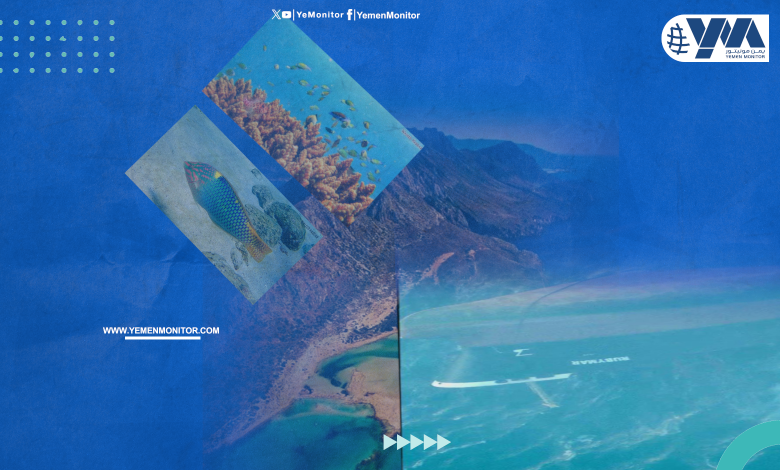Yamani Hunaish Island is facing great dangers due to a ship sunk by the Houthis

Yemen Monitor/New York/Exclusive
The International Maritime Organization (IMO), a specialized agency of the United Nations, has issued an urgent call for in-kind contributions of spill response equipment to support the internationally recognized government of Yemen in responding to the spill following the sinking of the cargo ship “MV Rubymar”.
The ship, which sank off the coast of Mokha on March 2, 2024, after being subjected to a missile attack by the Houthi group two weeks before its sinking, poses significant environmental and maritime security risks.
Rubymar was carrying approximately 22,000 metric tons of ammonium phosphate and ammonium sulfate fertilizer, 200 tons of heavy fuel oil, and 80 tons of marine diesel when it sank in waters approximately 100 meters deep. The incident resulted in a 29-kilometer oil slick, exacerbating the environmental threat.
“The ship currently remains partially submerged at its sinking location, where its remaining cargo of fuel and fertilizers poses a significant environmental hazard, particularly to the nearby environmentally sensitive Hunaish Islands,” the statement said.
The IMO’s call for assistance highlights the lack of specialized equipment to deal with oil spills within Yemen, which is essential to manage a potential spill from Rubymar tanker. The organization is seeking contributions from the international community to mitigate the environmental damage.
This incident marks the first sinking of a ship by the Iran-backed Houthi group since they began their attacks on ships in solidarity with the Palestinians in Gaza in November. To date, the group has claimed responsibility for more than 80 attacks on commercial vessels, resulting in the sinking of two ships, the deaths of four people, and the damage and injury of numerous vessels.
The call for contributions comes after the UN efforts to successfully remove over a million barrels of oil from the decaying FSO Safer tanker off the coast of Yemen in August 2023, averting a potential worst-case scenario oil spill that would have devastated coastal communities and created a crisis in vital shipping lanes in the Red Sea. The tanker had been at risk since 2015 amid the ongoing war in the country.




